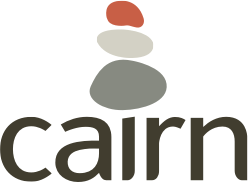Over the years, non-core subjects have lost their ground in the K-12 school day. Reading, writing and math are considered core since our national leaders in education believe that in order for the USA to be most competitive we need to teach and test these core subjects to ad nauseam. But what’s happening is that physical education and my beloved health is being cut at alarming rates. I’m unsure that focusing less on the whole child and more on these 3 golden subjects will really lead to higher test scores.
data-animation-override>
“A national survey of teachers found that 3 out of 4 teachers believe social and emotional learning will improve student academic achievement. Those who reported successful social and emotional learning programs in their schools were half as likely to say their school has a negative school climate.”
I mean, it makes sense that if you spend more time on a subject, your ability in that subject will improve. But what draws students to school everyday? What if you’re a student who is most satisfied learning about interpreting history over time? Singing and dancing in monthly performances? Analyzing which chemical makes a concoction fizz? What if you love learning about sportsmanship and being active in the middle of the day? What if you are interested in going into the healthcare field, but you go an entire year without hearing the word health at school? Interest in school plays a role. How do increase the graduation rate of our high school students in the USA? There are many factors, but interest plays a role.
Systems change is what really needs to happen. At the top. A whole child approach to educating our youth would be the best case scenario. In the meantime, however, one less expensive way to address the issue of bringing back more subjects is to support teachers integrating subjects. Do you remember ‘back in the day’ with art, PE, music in all elementary schools? Most elementary teachers aren’t able to effectively teach all topics since their pre-service education didn’t touch on everything. How can we train and educate our teachers to create classrooms that address a variety of subjects? Wouldn’t it be nice if we took the resources and time for our teachers to work in professional learning teams/communities to effectively integrate math and science? Art and health? Social studies and PE? Language arts and music? The public has an issue with professional development days, but I suggest as educators, we do a better job advocating and marketing the need for professional development and support, even though that means time away from our students. The return on investment would be enormous.
If most parents support health and physical education overall, let’s build off that support and bring awareness and education to the public that our schools are doing a disservice by cutting back to an extent that the curriculum is actually depriving our citizens of a well-rounded educational experience. Advocacy and support for professional development would take us a long way.
data-animation-override>
“Opinions of parents about Health and Physical Education have shown that 84% said that health education is either more important than or as important as other subjects taught in school and 74% said schools should spend more time or the same amount of time teaching health education as they do for other subjects taught in school.”

Leave a Reply